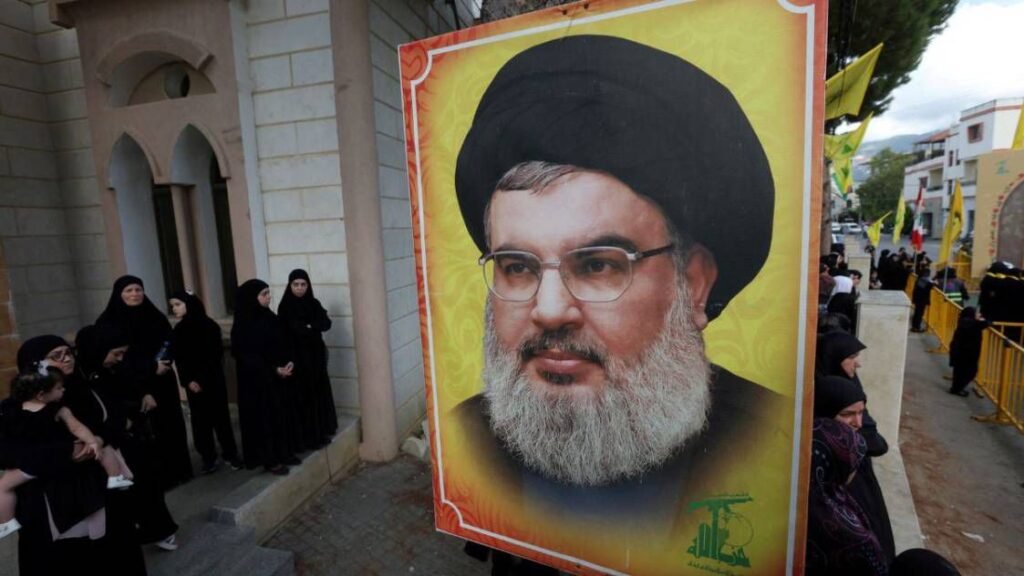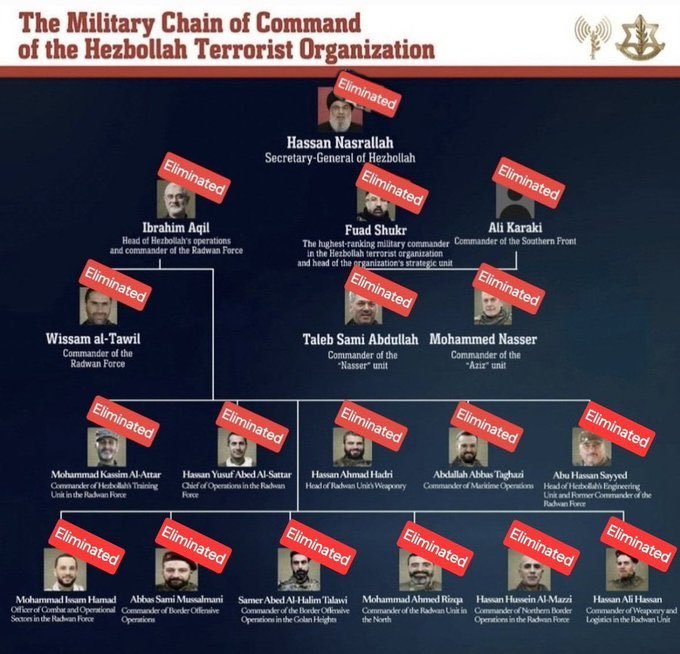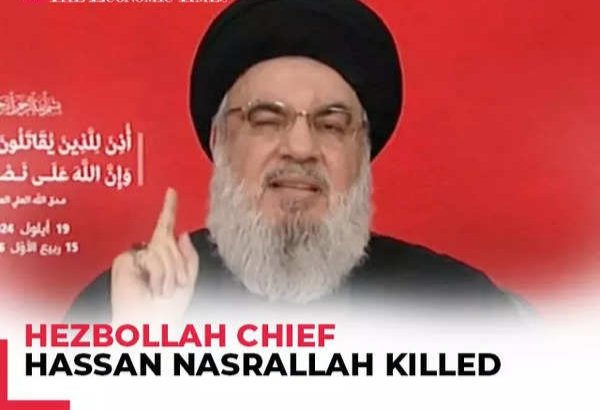
Israeli Defence Forces (IDF) Verify Hassan Nasrallah’s Demise, declare End to His Reign of Terror
The Israel Defense Forces (IDF) announced on Saturday that Hassan Nasrallah, the long-time leader of the Lebanese militant group Hezbollah, has been killed. In a statement posted on X, the IDF declared, “Hassan Nasrallah’s reign of terror has come to an end.”
The confirmation follows a series of overnight airstrikes conducted by Israel in Beirut, Lebanon’s capital city, targeting Nasrallah and other senior Hezbollah commanders.
In a significant escalation, the Israel Defense Forces (IDF) confirmed additional high-profile casualties within Hezbollah’s leadership. Alongside Hassan Nasrallah, the organization’s commander of the Southern Front, Ali Karaki, and several other senior members were also neutralized in the airstrikes.
This development comes on the heels of Israeli Prime Minister Benjamin Netanyahu’s defiant address at the United Nations General Assembly (UNGA), where he refused to yield to international pressure. The speech was followed by intensified military action.
Despite urgent calls from the United States and other global powers for a ceasefire, tensions between Israel and Hezbollah continue to escalate. The coordinated strikes mark a significant blow to Hezbollah’s leadership and operational capabilities.
IDF pledges to keep the fighting against terrorism
According to the IDF, Hassan Nasrallah’s 32- year leadership of Hezbollah was marked by relentless violence, resulting in the loss of numerous Israeli lives
“During Hassan Nastallah’s 32-year reign as the Secretary-General of Hezbollah, he was responsible for the murder of many Israeli civilians and soldiers, and the planning and execution of thousands of terrorist activities. He was responsible for directing and executing terrorist attacks around the world in which civilians of various nationalities were murdered. Nasrallah was the central decision-maker and the strategic leader of the organization,” the Israeli military said in the statement published on Saturday.

The Israeli Defense Forces (IDF) has reaffirmed its commitment to combating terrorism, vowing to protect its citizens and prevent harm from terrorist organizations. The IDF will continue to take action against anyone who promotes or engages in terrorism against Israel and its people. This pledge is part of the IDF’s ongoing efforts to address the threat posed by groups like Hamas and Hezbollah.
The IDF’s resolve to fight terrorism is rooted in its mission to defend Israel against external threats and maintain regional stability. The Israeli military has faced numerous challenges, including the recent attacks from Hamas, which resulted in significant loss of life and destruction.
Prior to confirmation of Hassan Nasrallah’s death, Israeli airstrikes in Beirut resulted in significant casualties, with reports indicating six fatalities and hundreds injured.
As the situation unfolded, Iran’s Supreme Leader Ayatollah Ali Khamenei convened an emergency meeting of the Supreme National Security Council. Senior Iranian officials expressed grave concern regarding Nasrallah’s status, highlighting Tehran’s close ties with Hezbollah.
During the urgent gathering, Iranian officials likely assessed the implications of Nasrallah’s potential demise on regional dynamics and Iran’s interests. The development underscores the significant stake Iran has in Hezbollah’s leadership and operations.
Ali Larijani, an Iranian official, recently shared his thoughts on the impact of assassinations in resolving Israel’s conflicts with resistance groups. He emphasized that such actions would be ineffective, stating, “Assassinations won’t solve Israel’s problems… New leaders will simply replace those who are eliminated”. This statement was made before the confirmation of Hassan Nasrallah’s death, the leader of Hezbollah.
Larijani’s comments underscore the complexities of the Middle East conflict, where the removal of key figures may not necessarily dismantle the underlying structures or ideologies. Instead, it may create power vacuums that allow new leaders to emerge.
The international community is now closely observing how the Middle East will respond to this development. The region’s dynamics are sensitive, and the aftermath of Nasrallah’s death could have far-reaching implications for regional stability and global geopolitics.





